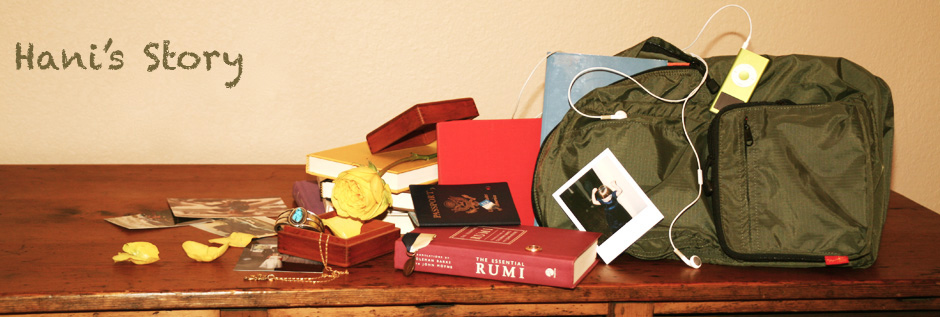“I don’t like the looks of it,’ said the King:
‘however, it may kis my hand, if it likes.’
‘I’d rather not,’ the Cat remarked.”
― Lewis Carroll, Alice’s Adventures in Wonderland & Through the Looking-Glass
The next morning, my first morning in space (well, technically there is no morning in space), much like Gregor Samsa, I woke from uneasy dreams. Unlike Kafka’s character, I fortunately hadn’t turned into a giant cockroach, but I was probably about as disoriented. I’d dreamed about my life on Earth, with a disturbed and apprehensive vagueness, my future somehow understood to be bright, but totally beyond my present sight, or reach.
The disembodied female voice coming from a speaker somewhere in my room was pleasant but detached. She coolly informed me that breakfast was served in the mess hall, and that I was to report to sickbay afterward.
I took naked satisfaction in managing the shower successfully, although I had to throw myself on the mercy of a passing crewmember to guide me to breakfast. The crewmember – a young woman who introduced herself as Lt. Marilyn Copp, an engineer – was friendly, and obviously curious about me. She used a communication device to ask permission to escort me to breakfast, and some voice with a pronounced Scottish accent granted it.
So, Lt. Marilyn led me into a large room that looked a lot like mess halls everywhere – long tables, rimmed with chairs, groups of people, uniformed and otherwise, clustered together, talking, laughing, or nursing that first cup of coffee. The only thing missing was the row of hair-netted lunch ladies behind banks of warming trays.
Marilyn asked me what I wanted to eat, and navigated me through the food service, making breakfast appear from behind little doors, like the ‘50’s automats in a Doris Day movie. All the while she was offering a running commentary on the technology that was enthusiastic, proud, and way too technical for me to follow.
She sat with me a few minutes, but then, obviously antsy, excused herself, late starting her shift. I wondered if I’d have to flag down another passerby to get me to sickbay, but while I was still eating, a neat young man in white showed up at my table, sent by the doctor to escort me.
Dr. McCoy was waiting, and greeted me with that easy-going smile of his, asking if I’d slept well, if I’d enjoyed my breakfast, assuring me I’d get the hang of things in no time.
Whatever I assumed about a physical exam – stethoscopes, peeing into little jars, all the usual – it wasn’t that at all. Instead, he led me back to an exam table much like the one I’d encountered the day before, only this one had a larger, more serious looking display on the wall behind it. He told me it was a micro-diagnostic table. I stretched out, realizing I was still tired from my adventures. He busied himself with the readings, as well as that little scanner he’d first used on me in my bedroom. My 21st century bedroom, I clarified to myself. My former bedroom. On my former planet.
“Absolutely appalling,” he pronounced in some disgust.
“I beg your pardon?” I didn’t know whether to be offended, annoyed or alarmed.
“Not you, Hanalie,” he was quick to assure me, patting my shoulder. “It’s the damn state of medicine in your time. The damn butchery. A hysterectomy? On a woman that young? What were you? 23? 24? What were they thinking?”
I couldn’t help it. I looked down at my own abdomen, wondering if somehow I’d become the Incredible Transparent Woman. Or whether doctors in this century all had laser-vision. How did he know that? He hadn’t even laid a diagnostic hand on me.
But, well, yeah. The hysterectomy. I’d actually forgotten about that.
I explained. I’d had a severe case of endometriosis in my early 20’s. I’d already had some troubles before I married Dale, but it really got bad a year or two after that. The standard treatment had been a hysterectomy, pretty heavy surgery, yes, but even then, at that young age, I somehow never associated myself with motherhood, so it never seemed like the trauma it was for some women. I’d have done anything by that point to get rid of the pain, and I admit, not having periods wasn’t something I ever complained about.
Dale didn’t see things that way. I could see, looking back, that the surgery was when things really started to fall apart for us. Maybe he thought I was a failure as a woman. No, wait, that’s pretty much what he actually said to me. What a sweetheart. And it didn’t occur to Dale that leaving on a business trip the day after I got home from the hospital wasn’t exactly being the model of a supportive spouse, either. Nope, he just took off, leaving me to stagger around the house by myself, stoned on painkillers, violating the doctor’s orders to stay in bed, just to be able to feed myself. I guess that should have been a sign, huh?
It took me a minute to realize the doctor’s “what were they thinking?” question wasn’t about Dale at all, but about the 21st century medical establishment.
It was easy to talk to Dr. McCoy. Even with his pointed rants about the primitive medicine of my time – my former time – his genuine interest and concern came through.
I didn’t realize until that moment how devoid my life had been of anyone who actually cared about me, not with such passion – even if the passion was only professional and more than a little cranky. It made me realize, maybe for the first time, how much devotion I’d given to Bob, and how little energy or attention he’d had left, especially toward the end, to care about, much less take care of, me, even though I know he loved me, to his last minute.
I’d been so alone, all along. Alone, while I tended my dying husband. Alone, while I sat at the bedside of my dying mother, who had, for all practical purposes, left me long before her body did.
All this was hitting me now, sitting here, all alone again. Well, not technically alone. Me and about 400 complete strangers wandering through space together. All well and good to dredge up those old abandonment issues, Hani, but aren’t we on a different playing field now?
I tried to see myself through Dr. McCoy’s eyes, how he probably saw my missing womb as something precious that had been taken from me, while I’d just seen my barren state as a fact of life, maybe as a confirmation that I was never going to be fruitful and multiply, that somehow I never quite earned the normal gifts most people take for granted.
Dr. McCoy’s hand was on my shoulder again; I was beginning to recognize it as his signature move. He looked concerned, and asked if I was all right.
“I….yeah,” I finally answered, knowing there was no way I could put into words what I was feeling. I was very aware of that steady hand on my shoulder, a totally professional touch, and yet somehow I felt in it an ease between us that was unexpected, given the short time we’d known each other. I reached up to pat his hand with mine, give that steady hand on my shoulder a little squeeze; a gesture so instinctive, so natural, so spontaneous, it didn’t occur to me until later that it might have been inappropriate.

